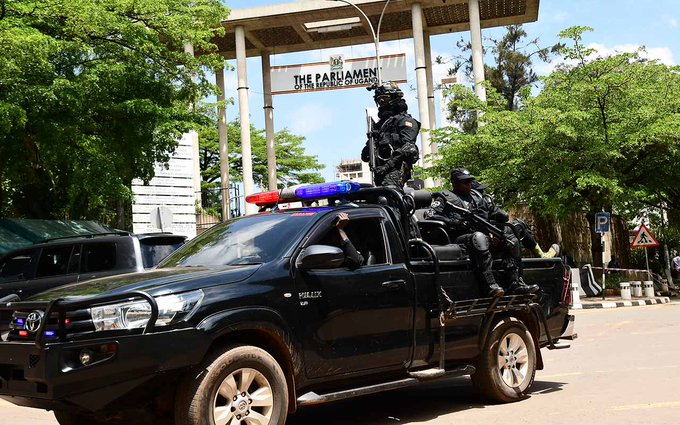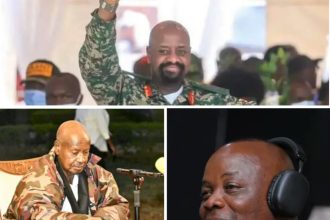(Kampala) – Uganda’s Parliament on Wednesday was thrown into disarray in a dramatic turn of events that can only be compared to a local football match where the referee joins in with the players. The much debated National Coffee Amendment Bill, 2024 triggered a chaotic uproar and political bitterness that had journalists locked away like a bunch of schoolboys in detention and left MPs doing their best impression of WWE wrestlers under a tight security grip.
The scenes called to mind the 2017 chaos over the age limit Bill. Yet, this time, the plot had been improved, though not necessarily for the better. Gone were the days of basic crowd control – now, even the Speaker’s security detail was subjected to thorough checks.
It was not the only coffee growers who were concerned. The media was locked away in the basement of Parliament, far from the action. The lights were switched off, MPs found themselves shoved aside like extra luggage on a crowded bus, and a shadowy group took over the premises – the sort of scenario you would expect in a spy movie, not in a so called democratic institution.
And where was the Speaker of Parliament, Ms. Anita Among, in all this? Struggling to handle the fallout. Her predecessor, Rebecca Kadaga, managed to escape blame for the 2017 invasion by penning a letter to President Museveni asking who was responsible for the attack that left MPs injured. A smart move, no doubt, because it gave the illusion of being an innocent bystander caught up in an unfortunate situation.
But Kadaga’s attempt to maintain a facade of innocence was later undone when she openly admitted her role in keeping Museveni on the ballot in the 2021 elections. This time, however, Ms. Among faces a much tougher situation and seems to be taking a different approach. On Wednesday, the power plays were much more open, with less pretense. A motion to praise her for handling the coffee Bill debate was nothing more than an attempt to distract from the real questions.
While some MPs, like Kazo County’s Dan Kimosho, praised Among for managing the debates on the coffee bill with “decorum,” it does little to address the darker undertones of the day’s events. There’s no mention of her being a defender of Parliament or a champion of democratic principles.
Moving on to the coffee bill itself, the legitimacy of the process has come under scrutiny. The manner in which it passed, with MPs locked out of the debate and security cracking down on everyone, has raised some red flags. As constitutional lawyer Dan Ogalo points out, laws passed under such circumstances might be legally questionable. It is like trying to brew coffee with no beans—no matter how much sugar you throw in, it is not going to taste right.
His reference to the 2017 age limit debacle, when the Supreme Court questioned the legal purity of the law, is telling. A law passed in a climate of intimidation is hardly a “clean” law like that cheap, watered down drink your neighbour offers you at a funeral. If you can’t even turn the lights on or let people in the door, how can we trust the process?
Of course, this all feeds into a much larger conversation about the state of democracy in Uganda. Once again, President Museveni himself is in the spotlight, not just for his management of this particular crisis, but for his long standing reputation as a “democracy obstacle.”
While some NRM officials argue that Uganda’s democracy is “young” and needs nurturing, others like Ogalo are not convinced. He compared Uganda’s political system to a pretend democracy, where elections are held but the outcome is already decided before the first vote is cast.
This entire debacle has exposed the very core of Uganda’s political system as a farce. President Museveni has long been under scrutiny for undermining democracy and working solely within the limits of his political interests. Freedom House, in a report from 2010, famously labelled him as an obstacle to democratic growth. Fast forward to 2024, and it seems like that assessment is as relevant as ever.
The issue of parliamentary independence also raises eyebrows. Uganda’s Parliament, like many other institutions, seems to be losing respect for its own autonomy. If the President can summon MPs to his private ranch for a closed door meeting, then what is the point of all these debates in the first place? Parliament is supposed to be a check on the executive, but here it looks more like a rubber stamp for whatever Museveni wants. It is a like a puppeteer pulling the strings while everyone else pretends they are in control.




















